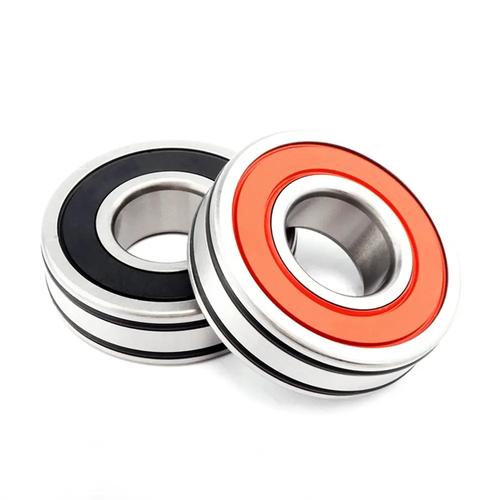Ultimate Guide to Medical Precision Bearing Catalog: Types, Selection, and Maintenance Tips
Medical precision bearings are critical components in advanced medical equipment, ensuring smooth operation and accuracy in devices like MRI machines, surgical robots, and dental instruments. This catalog provides essential technical specifications, material details, and application guidelines to help professionals select bearings that meet stringent hygiene and performance standards.
Table of Contents
1. Types of Medical Precision Bearings2. How to Choose Medical-Grade Bearings
3. Cleaning and Sterilization Procedures
4. Certifications for Medical Bearings
5. Troubleshooting Common Bearing Issues
1. Types of Medical Precision Bearings

Medical equipment requires specialized bearing types to meet unique operational demands. Ceramic hybrid bearings offer superior corrosion resistance in sterilization environments, while stainless steel angular contact bearings handle combined radial and axial loads in CT scanners. Miniature precision bearings (2-8mm bore sizes) enable compact designs in dental handpieces. MRI-compatible bearings use non-magnetic materials like titanium alloys to prevent interference with magnetic fields. Each type undergoes rigorous testing for low noise, high-speed capability (up to 60,000 RPM), and biocompatibility compliance.
2. How to Choose Medical-Grade Bearings
Selecting medical bearings requires evaluating load capacity (dynamic/static ratings), lubrication compatibility with sterilization chemicals, and temperature tolerance (-80°C to 300°C). Consider FDA-approved materials like 440C stainless steel or zirconia ceramics. Verify ISO 13485 certification for quality management systems. For radiation-resistant applications, specify bearings with PEEK cages. Always cross-reference manufacturer load-life calculations (L10 rating) with actual equipment usage cycles.
3. Cleaning and Sterilization Procedures
Medical bearings must withstand autoclaving (121°C steam), gamma radiation, and chemical disinfectants. Use bearings with special seals (PTFE-coated or triple-lip designs) to prevent fluid ingress. Post-sterilization lubrication requires NSF H1-registered greases. Implement ultrasonic cleaning protocols every 500 operating hours. Always follow OEM guidelines for disassembly sequences to prevent premature wear from improper handling.
4. Certifications for Medical Bearings
Essential certifications include ISO 5832-3 (implant-grade materials), RoHS compliance, and USP Class VI biocompatibility testing. FDA 21 CFR Part 11-compliant documentation ensures traceability. European medical devices require CE Marking with MDR 2017/745 compliance. Look for manufacturers with ISO 9001:2015 and ISO 14001 certifications for environmental management. Third-party validation reports should confirm EMC performance in sensitive imaging equipment.
5. Troubleshooting Common Bearing Issues
Abnormal noise often indicates lubrication breakdown - relubricate using manufacturer-specified intervals. Overheating (above 70°C) suggests improper preloading or seal friction. Corrosion spots signal chemical incompatibility - upgrade to ceramic or coated variants. Vibration analysis tools can detect early raceway wear patterns. Implement predictive maintenance schedules using IoT-enabled sensors to monitor vibration (velocity under 0.12 in/sec RMS) and temperature thresholds.
Understanding these critical aspects of medical precision bearings ensures optimal equipment performance and regulatory compliance. From material science to maintenance protocols, each factor contributes to extended bearing lifespan and patient safety. Continue reading to explore technical specifications, compare leading manufacturers, and discover innovative bearing solutions reshaping modern healthcare technology.
This comprehensive guide covers essential knowledge for selecting and maintaining medical precision bearings. By implementing proper selection criteria, sterilization practices, and maintenance schedules, healthcare facilities can significantly improve equipment reliability while reducing downtime. Always consult certified bearing specialists for complex medical applications requiring custom solutions.




 13869596835
13869596835